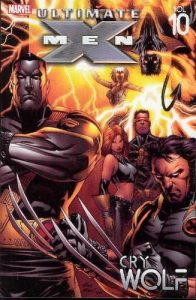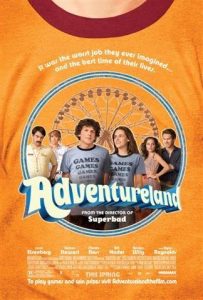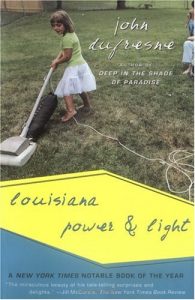Without meaning to, I let a good two months slip by before I finally saw the Friday the 13th remake. And when I did see it this weekend at the dollar theater, it was by myself and a little bit creepy. I mean, not the movie, which was every bit the traditional slasher flick. No, it was the theater crowd. Five minutes before the movie started, there were four men scattered in various parts of the non-stadium theater with decaying seats. It was starting to feel like I imagine a porn theater did, back when those were still around. But yay, some people finally came in together, even a woman in one case. And thus the day was saved and I was able to focus on the plot.
Basically, this is a reimagined Friday the 13th Part 2, after a straight port of the original movie was covered in black and white flashbacks prior to the title screen.[1] The reimaginings are a bit of a mixed bag. On the one hand, it’s pretty smart to have the new victims not be a batch of camp counselors come to reopen Crystal Lake a few years after a series of brutal murders. Because, that would never happen, right? Much less four times in a row as in the original series. On the other hand, it’s strange to have an explicit hero character in Jared Padalecki[2], roaming town and environs in search of his missing sister. One of the brilliances of the Friday the 13th series was that the characters were almost always on an equal footing going in, such that there was no way to guess who might live.[3]
The important part, though, is that they waste no time getting to the action, which follows the formula almost to a tee. A large number of TV-recognizable[4] young people in the woods who take drugs and engage in premarital sex are punished by a deformed, avenging spirit with a machete. Do heads roll? Are pokers shoved through faces? Are feet liberally stabbed? Are minorities slightly more likely doomed than everyone else? Yep, it’s a slasher movie. 14 bodies. 6 breasts. Drive-in Academy Award nomination to Julianna Guill for flirting so hard with the Asian kid that she literally burned his lip and then having the grace to be hung from a pair of antlers in penance, and also for her “spectacular” talents.
[1] Not that it matters one way or the other, but I’m almost surprised they didn’t take the color out of the original’s footage and use that, instead of filming their own version. They added some new footage right at the end, sure, but it still could have been done.
[2] That guy from Supernatural. Yeah, that one.
[3] Caveat: the We Have Seen Your Breasts, You Must Therefore Die rule was of course always in effect.
[4] Sam Winchester[2], Dick Casablancas, Kira the Bajoran (not technically young, her), and a handful of others from shows I don’t watch.
 I am really ambivalent about my latest X-Men,
I am really ambivalent about my latest X-Men,  Have you noticed how practically everything that’s going on in Hollywood in the past three or four years isn’t more than a degree of separation from Freaks and Geeks? Which was a short-lived NBC coming of age drama, in case you entirely failed to be aware of it. But then I doubt you’d have noticed this new thing. I’ll tell you who has, though: Terry Gross, that chick from Fresh Air.
Have you noticed how practically everything that’s going on in Hollywood in the past three or four years isn’t more than a degree of separation from Freaks and Geeks? Which was a short-lived NBC coming of age drama, in case you entirely failed to be aware of it. But then I doubt you’d have noticed this new thing. I’ll tell you who has, though: Terry Gross, that chick from Fresh Air. I’m in a book club. Well, that’s not entirely accurate. As with all book clubs above a certain mayfly-like age, it has died an inglorious death, somewhere in the middle of the first book.[1] But I can say with pride that I did not contribute to that death. Yay! The book selected was one of those modern fictions in the sense that it was published since the middle of the last century and doesn’t have a particular sub-genre, but not in the sense that it was designed solely to fill me with rage. Which does make it rather a stand-out, and I’m glad someone put me onto it!
I’m in a book club. Well, that’s not entirely accurate. As with all book clubs above a certain mayfly-like age, it has died an inglorious death, somewhere in the middle of the first book.[1] But I can say with pride that I did not contribute to that death. Yay! The book selected was one of those modern fictions in the sense that it was published since the middle of the last century and doesn’t have a particular sub-genre, but not in the sense that it was designed solely to fill me with rage. Which does make it rather a stand-out, and I’m glad someone put me onto it!